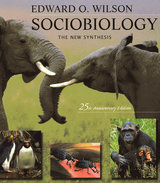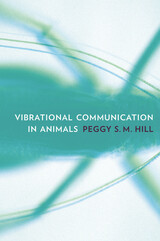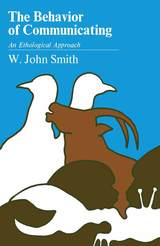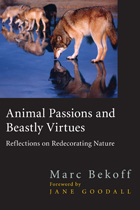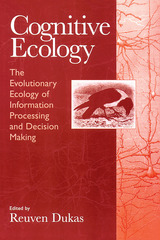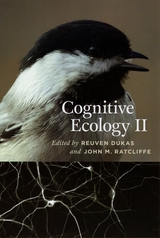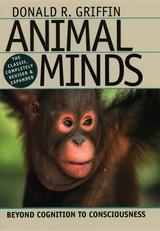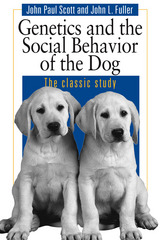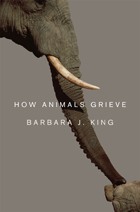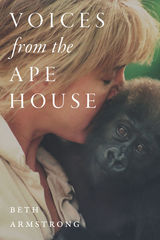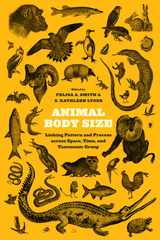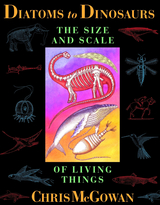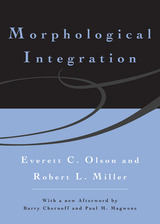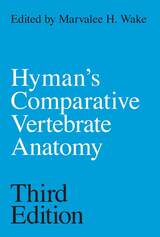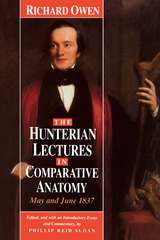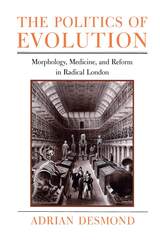Animal Cognition accounts for all the main study areas as well as some key experiments [in comparative psychology]. The treatment is economical, empirical, and overtly psychological...Straightforward chapters cover the cognitive implications of tool use, spatial orientation, communication, imitation, theory of mind and self-awareness. [Vauclair] has a knack for distilling out the essence of experiments and letting the reader decide. But the book is not devoid of theoretical context. A whole chapter is devoted to Piaget's 'experimental epistemology' and its application to comparative psychology and the book concludes with a sketch of semiotics and its application. Animal cognition has been in danger of becoming something of a bandwagon, with researchers nourishing their own theoretical idiosyncrasies, speculating on the basis of their own particular experiments on their own particular species. Since ideas come rather cheaply, Animal Cognition has wisely built its foundations on empirical ground.
-- Thomas Sambrook Times Higher Education Supplement
Vauclair has a clear agenda: progress in this field is not to be made with fuzzy concepts, interest in what it is like to be a certain kind of animal, and assumptions of continuity where none exists; the experimental path that eschews issues of animal consciousness is the one to follow. Yet, those with a broader focus than Vauclair's, who welcome richer, more qualitative methods, will still feel comfortable with his presentation of experimental research. Without a polemicist's stick, beating the drum of human uniqueness and grossly underestimating the abilities of animals, he discusses animal cognition, often concluding that the glass is half-empty rather than half-full, but with an eye to reason, not dogma...Clear and very readable, this excellent volume will serve graduate and advanced students well in courses dealing with animal cognition, cognitive studies, primate studies, or philosophy of mind. But, it is best taken as an extended review of current research and essay arguing for methodological precision. Those outside of comparative psychology and cognitive research will be enlightened by reading this careful summation of experimental approaches to questions of animal cognition, along with Vauclair's arguments both for and against continuity between humans and other animals.
-- H.L. Miles Contemporary Psychology
Vauclair has produced a state-of-the-field review that reveals contemporary comparative psychology to be vital, interesting and heuristically rich. Eschewing the many parametric investigations of classical and instrumental conditioning (leaving their summary to the excellent volumes already in print) and focusing instead on topics comparable to those typical of human cognition, Vauclair has provided a tool that should encourage a new generation of students to consider a research career in comparative cognition.
-- David A. Washburn Trends in Cognitive Sciences
The book can be recommended to those seeking an overview of experimental studies of animal cognition that have been conducted in the last decade or so. Within the topics that are covered, the review of the relevant literature is on the whole thorough. Moreover, the conclusions that are drawn from experimental findings are fair and, when necessary, appropriatelycautious.
-- J.M. Pearce Animal Behaviour
Vauclair emphasizes Piagetian studies and laudably presents its framework, chief findings and criticisms of these...Social cognition is considered functionally and experimentally, with appropriate attention to problems of methodology and interpretation (e.g., conditioning or concept-formation as explanatory mechanisms)...The especially illusive topics of imitation, self-recognition, and theory of mind are well treated, with due acknowledgement of controversies...In the final chapter, ambitiously titled Agenda for Comparative Studies, Vauclair attempts to criticize and reconcile different approaches, including Donald Griffin's animal thinking...The style of writing is straightforward; each chapter helpfully ends with a critical summary...This book gives a thoughtful introduction tocomparative psychology.
-- Behavioural Processes
This is an interesting and thought-provoking book that works well at several levels. It provides a good introduction to animal cognition for the reader new to the subject, and its crisp approach and fresh organisation of material means that experts, too, will have something to learn from it.
-- Quarterly Journal of Experimental Psychology
Vauclair's well-referenced volume provides an excellent introduction to the scientific study of cognition in animals. The book traces the roots of modern comparative psychology and describes the typical laboratory methods for assessing mental representations of knowledge; it then discusses diverse topics such as animal applications of Piagetian concepts, tool use in animals, spatial and temporal representations, social cognition, animal communication, and theory of mind in a straightforward, easily comprehensible manner...An excellent resource.
-- Choice
A concise and very useful introduction to what the author identifies as 'modern comparative psychology'. Although the text is kept simple and accessible to the non-specialized reader, the treatment is rigorous and reliable.
-- Juan Carlos Gómez Estudios de Psicología

